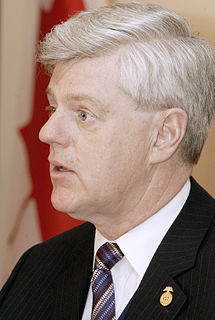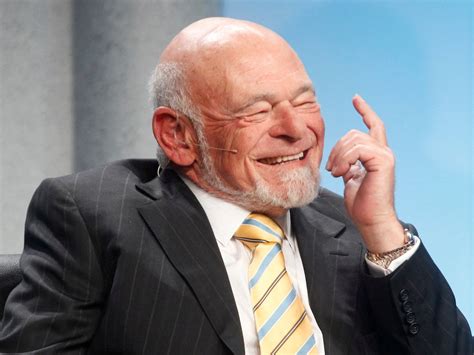A Quote by Kevin Kinsella
We live in a global market and money's fungible and hedge fund private equity is looking for momentum plays, and there ain't no momentum plays in bonds, right? When the interest rates were spiking up or down, well they never really spike down they do spike up though. Something's got to happen, there's got to be motion, the dice has to be rolling on the board, and if it's not then they're not going to play because they're not going to get the adrenaline rush from looking at... you know, money markets fund interest rates or bond interests or whatever. It's got to be sexy.
Quote Topics
Adrenaline
Adrenaline Rush
Because
Board
Bond
Bonds
Dice
Down
Equity
Fund
Get
Global
Global Market
Going
Got
Happen
Hedge
Hedge Fund
Interest
Interest Rate
Interest Rates
Interests
Know
Live
Looking
Market
Markets
Momentum
Money
Motion
Never
Play
Plays
Private
Private Equity
Rates
Really
Right
Rolling
Rush
Sexy
Something
Spike
Then
Though
Up
Well
Were
Whatever
Related Quotes
Since 2008 you've had the largest bond market rally in history, as the Federal Reserve flooded the economy with quantitative easing to drive down interest rates. Driving down the interest rates creates a boom in the stock market, and also the real estate market. The resulting capital gains not treated as income.
The underlying strategy of the Fed is to tell people, "Do you want your money to lose value in the bank, or do you want to put it in the stock market?" They're trying to push money into the stock market, into hedge funds, to temporarily bid up prices. Then, all of a sudden, the Fed can raise interest rates, let the stock market prices collapse and the people will lose even more in the stock market than they would have by the negative interest rates in the bank. So it's a pro-Wall Street financial engineering gimmick.
See the investment world as an ocean and buy where you get the most value for your money. Right now the value is in non-callable bonds. Most bonds are callable so when they start going up in price, the debtor calls them away from you. But the non-callable bonds, especially those non-callable for 25-30 years, can go way up in price if interest rates go way down.
When a hedge-fund guy gets lucky because the market goes up, and he is going to make $200m, and you know $200 million, and he is going to pay almost no tax. I don't think that is a good thing for the country, and they are all supporting Jeb Bush and Hillary Clinton, all the hedge-fund guys. I don't want their support, because I'm totally self-funding my campaign.
Interest rates are going to go up because employment is going to go up. If employment goes up, then our apartments get filled. And if employment goes up, our office buildings get filled. The reality is that increased economic activity combined with increased interest rates is basically bullish for real estate.
If you let interest rates be freed, be set by the free market, they would rise dramatically. There would be a lot of broken furniture on Wall Street. It needs to be broken. The back of the speculative bubble would be broken and we could slowly heal the financial system. That's what I think we need to do but it's never going to happen because there's trillions of asset values dependent on the Fed continuing to suppress, repress interest rates and shovel $85 billion a month of liquidity into the market.
The time will come, and probably during 2009, that the only way the U.S. will be able to fund its deficits is to create money by printing it. The Treasury will have to sell bonds, and, in the absence of foreign buyers, the Fed will have to print the money to buy them. The consequence will be runaway inflation, increasing interest rates, recession, and inevitable tax increases on all Americans.
I've always believed that a speculative bubble need not lead to a recession, as long as interest rates are cut quickly enough to stimulate alternative investments. But I had to face the fact that speculative bubbles usually are followed by recessions. My excuse has been that this was because the policy makers moved too slowly - that central banks were typically too slow to cut interest rates in the face of a burst bubble, giving the downturn time to build up a lot of momentum.


































